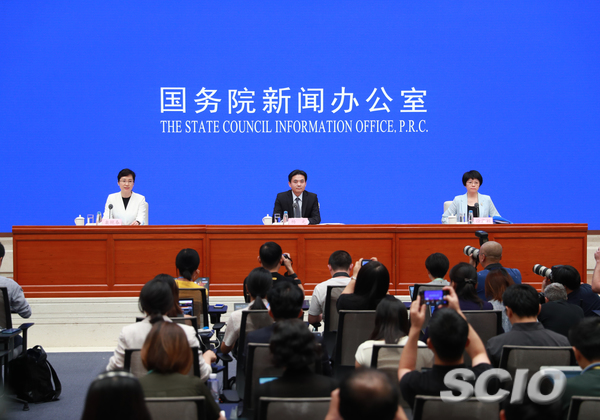HK rioters condemned for criminal activities
Criminal acts committed by a few rioters in Hong Kong show that their purpose is no longer related to the extradition bill but instead is intended to paralyze the Hong Kong government and make the city an independent political entity, a spokesman for the Hong Kong affairs authority said on Tuesday.
Criminal acts committed by a few rioters in Hong Kong show that their purpose is no longer related to the extradition bill but instead is intended to paralyze the Hong Kong government and make the city an independent political entity, a spokesman for the Hong Kong affairs authority said on Tuesday.

"They are in fact confronting the central government and imperiling the principle of 'one country, two systems'," using the high degree of autonomy as a pretext, said Yang Guang, a spokesman for the Hong Kong and Macao Affairs Office of the State Council.
Yang said the rioters have not hesitated to violate the law and engage in violence to willingly serve external forces and anti-China forces.
Hong Kong's situation is still grim and complex, he said, adding that the violence and illegal activities have not been totally kept at bay, with a small number of rioters doubling down on their violent and criminal activities.
Yang said three rioters ambushed a police officer on Friday and attacked him with knives, causing serious injury. "The cruelty has reached the level of madness," he said.
On Friday, rioters tossed gasoline bombs at police and government buildings and picked up police tear gas grenades before tossing them into a military camp of the PLA Hong Kong Garrison.
They incited students to boycott classes and used students as tools to achieve their political goals, Yang said, adding that the rioters even threatened to die together and tried to bend the Hong Kong Special Administrative Region government under their pressure by resorting to such extreme behavior.
"We have reached a crucial moment to protect the 'one country, two systems' principle and maintain Hong Kong's prosperity and stability," Yang said. "We should not hesitate or compromise on issues concerning Hong Kong's future and destiny."
Yang called on the SAR government and people from all sectors of society to further build consensus on containing turmoil and bringing order back to Hong Kong.
As for the demonstrators' "five demands", including universal suffrage for the election of chief executive, Yang said they are not expressing demands but are threatening and coercing the central government.
"The universal suffrage they want is to elect a chief executive who is not accountable to the central government," Yang said, indicating that the purpose is to make the principle of "one country, two systems" exist in name only.
Under the Basic Law, candidates for Hong Kong's chief executive must be endorsed by a majority of a nominating committee, and the chief executive must be accountable to the central government.
Xu Luying, a spokeswoman for the Hong Kong and Macao Affairs Office of the State Council, said the central government will not allow the chaos in Hong Kong to continue indefinitely and will not stand idly by if it worsens and turns into unrest that threatens national sovereignty.
"It's totally wrong that the deployment of the People's Liberation Army garrison in Hong Kong would overturn the principle of 'one country, two systems'," Xu said.
The Garrison Law states that the SAR government can request that the central government let the PLA garrison in Hong Kong help maintain local public order.
The Constitution and the Basic Law also grant the Standing Committee of the National People's Congress-the top legislature-the power to judge and directly announce an emergency status for Hong Kong, under which the PLA Hong Kong Garrison can perform its duties accordingly.
"The two conditions are both under the framework of the 'one country, two systems' principle," she said.
On Tuesday morning, Hong Kong Chief Executive Carrie Lam Cheng Yuet-ngor firmly denied media reports hinting at her broaching the subject of possible resignation in a private conversation.
Speaking to reporters ahead of the weekly meeting of her Executive Council, Lam said, "From the beginning until now, I have never tendered my resignation to the Central People's Government."
Lam reaffirmed that she had never contemplated resigning as she took questions from reporters. "Let me say it in a clear-cut manner: No," Lam said.
In an unambiguous message, Lam said: "In a private session, I just attempted to explain, as an individual, given the very difficult circumstances, it (resignation) might be an easy choice to make. But I told myself repeatedly in the last few months that my team and I should stay on to help Hong Kong in a very difficult situation and serve the people of Hong Kong. That remains my position."

